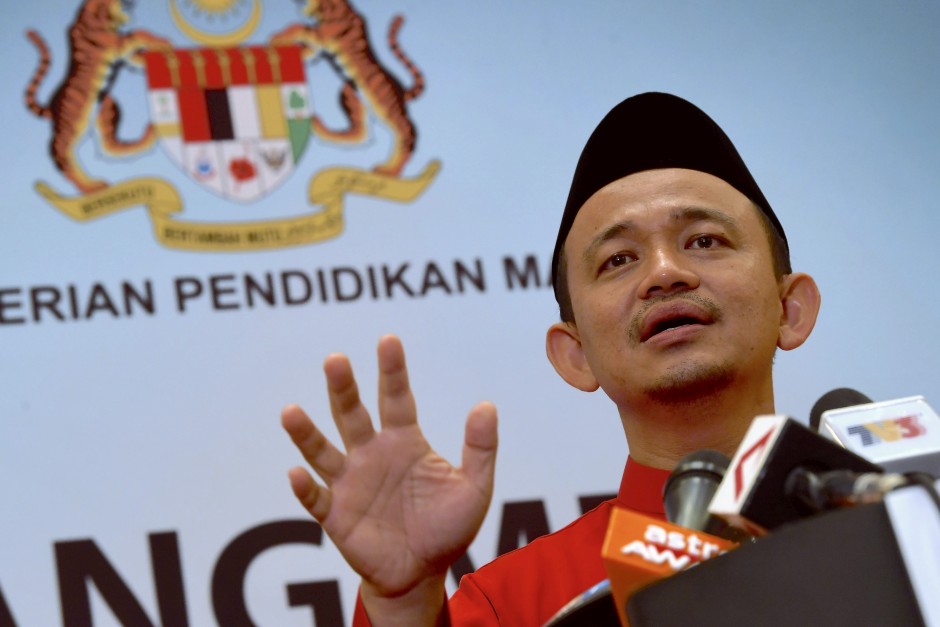Local students wanted – THE world’s largest concrete machinery company is keen on training young Malaysians under the Fourth Industrial Revolution 4.0.
Sany Group Co Ltd managing director Keade Wang said China’s biggest construction machinery manufacturer exports to 150 countries, has three industrial building system (IBS) factories here, and is looking to expand. Plans are underway to develop a heavy machinery industrial plant in Kedah, and it wants to work with the Education Ministry to transfer its technology and train our students under the TVET programme.
“Sany Polytechnic College, which is over a decade old, is owned by the Group. We’re in talks with the ministry and a local Technical and Vocational Education and Training (TVET) institution, to train Malaysian students and place them in Sany Group branches worldwide.
“We’re hoping to get the green light from the ministry soon for our Construction Industry Development Board (CIDB) aligned syllabus to be used. We need TVET workers and local students are wanted because they’re multilingual. Those successfully trained by the Group can even work in our plants overseas.
 Three months ago, Education Minister Dr Maszlee Malik said Chinese firms want to sponsor TVET students.
Three months ago, Education Minister Dr Maszlee Malik said Chinese firms want to sponsor TVET students.
He had that said there would be more TVET scholarship and training opportunities for Malaysian students in education institutions and companies in China, The Star reported.
Sany was among the Chinese companies which met him and ministry representatives to discuss preparing Malaysians who graduated from technical and vocational education and training to face the challenging international industry.
A joint-venture with local property developers will see Sany needing more of “the right workers”, said Sany Construction Industry Development director Chang Bar Kuei.
He said its design, production, installation, education, and equipment, are in line with the country’s CIDB requirements.
“It doesn’t make monetary sense to replace the entire process with machines and automation because it would make homes unaffordable.
“So TVET graduates don’t have to worry about being jobless. But, we’re selective about who we train because the right attitude is important.
“No point transferring knowledge and skill to someone who isn’t serious about the industry.
“That’s why our potential trainees must all undergo an interview process,” said Chang.
Dr Maszlee, he said, had visited Sany Polytechnic College last year, to understand the college’s focus on both theory and practical.
“This dual focus is important because students must be able to communicate and interact with others when they start working.
“The TVET workers we’ve seen so far lack confidence because the skills they bring to the industry is irrelevant. So we’re facing a shortage of quality operators.
“We want to make sure that the students we train have sound technical, and soft skills, so that they can work anywhere in the world.”
Chang said a relevant TVET syllabus is critical in ensuring that graduates are paid fairly.
Instead of cheap foreign labour, Sany, he said, preferred to pay young Malaysians who are serious about their careers.
“A TVET graduate can earn between RM3,000 and RM4,000 if their syllabus is industry-relevant. For example, our troubleshooting is all computer-run so we can’t get someone who only knows hardware,” he said, adding that Sany is willing to work closely with the Government on its TVET policies.
Sany has also engaged with the National Union of the Teaching Profession (NUTP) to identify potential trainees.
NUTP secretary-general Harry Tan said TVET and varsity graduates must be given equal recognition.
“Our TVET graduates aren’t paid enough. But then again, for them to be hired and to get a good salary, they must be trained in skills that the industry want – not the current syllabus. If the Government is serious about TVET, it has to get its act together – fast.”
On Dec 28, The Star’s exclusive highlighted concerns over the outdated TVET syllabus, and plans by industry leaders to chart the way forward. The newly formed “Industry Lead Bodies” would ensure that Malaysia’s TVET was on par with developed nations like Australia and Canada.
Two months ago, the mid-term review of the 11th Malaysia Plan (11MP) – a five-year development plan for the country from 2016-2020 – was tabled at the Dewan Rakyat by Prime Minister Tun Dr Mahathir Mohamad.
The report found that the intake of TVET students has increased and though classified as technologists, graduates are not recognised as professionals with the bargaining power to demand higher wages.



 Three months ago, Education Minister Dr Maszlee Malik said Chinese firms want to sponsor TVET students.
Three months ago, Education Minister Dr Maszlee Malik said Chinese firms want to sponsor TVET students.